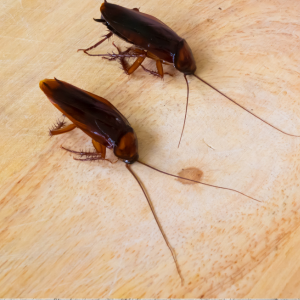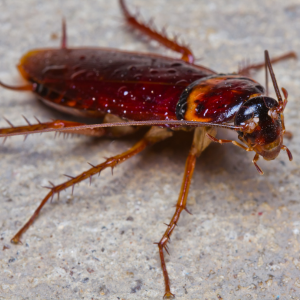


Cockroaches are more than just a nuisance; they pose significant health risks, especially for individuals with allergies and asthma. Understanding the impact of cockroach allergens and taking steps to reduce exposure is crucial, particularly in urban and inner-city areas where infestations are more common. Here’s an in-depth look at why cockroaches are detrimental to those with allergies and asthma, and how STL Pest Control can help protect your home.
The Problem with Cockroach Allergens
Cockroaches produce several potent allergens that can trigger allergic reactions and asthma symptoms. These allergens come from various sources:
- Droppings: Cockroach feces contain proteins that are highly allergenic.
- Saliva: When cockroaches groom themselves, they spread saliva containing allergens.
- Decomposing bodies: As cockroaches die and decompose, their bodies release allergenic proteins.
- Cast skins: Cockroaches molt multiple times throughout their lives, leaving behind allergen-laden skins.
- Egg casings: Cockroach egg cases also contain allergens that can contribute to indoor air pollution.
These allergens can become airborne, settling on surfaces and contaminating the indoor environment.
Health Effects of Cockroach Allergens
Exposure to cockroach allergens can lead to various health issues, particularly affecting the respiratory system. Key health effects include:
- Worsening of asthma symptoms: Cockroach allergens can exacerbate asthma, causing increased frequency and severity of asthma attacks.
- Allergic reactions: Individuals sensitive to cockroach allergens may experience symptoms such as sneezing, runny nose, itchy eyes, and skin rashes.
- Increased risk of asthma development in children: Children exposed to cockroach allergens are more likely to develop asthma.
- Upper respiratory infections: Continuous exposure to these allergens can lead to infections in the upper respiratory tract.
Symptoms of exposure may include wheezing, coughing, chest tightness, and shortness of breath, which can significantly impact the quality of life.
Prevalence and Impact of Cockroach Allergens
Cockroach allergens are among the most common indoor allergens, with widespread prevalence and serious implications:
- High allergen presence: Studies show that 17-41% of people in the United States are allergic to cockroaches.
- Inner-city impact: Approximately 85% of inner-city US homes have detectable levels of cockroach allergens.
- Children’s health: Around 60-80% of inner-city children with asthma are sensitized to cockroach allergens, making it a significant factor in asthma morbidity.
Vulnerable Populations
Certain populations are more susceptible to the adverse effects of cockroach allergens:
- Children, especially in inner-city areas: Younger children are at a higher risk of developing asthma due to early exposure to allergens.
- People with a history of allergies or asthma: Individuals with pre-existing conditions are more likely to experience severe reactions.
- Individuals with weakened immune systems: Those with compromised immune systems are more vulnerable to infections and allergic reactions.
- Lower socioeconomic groups: African American and Hispanic populations in lower socioeconomic brackets are disproportionately affected due to higher exposure rates.
Long-term Consequences
Early and prolonged exposure to cockroach allergens can have lasting health effects:
- Childhood exposure: Exposure to cockroach allergens in the first three months of life is strongly associated with repeated wheezing and the development of asthma.
- Increased asthma morbidity: Continuous exposure leads to more frequent and severe asthma attacks, resulting in higher rates of hospital admissions and medical interventions.
Taking Action Against Cockroach Allergens
Understanding the risks associated with cockroach allergens is the first step in protecting your health. Here’s how you can reduce exposure and manage allergies and asthma more effectively:
- Maintain cleanliness: Regular cleaning can help reduce allergen levels. Pay special attention to kitchens and bathrooms where cockroaches are likely to reside.
- Seal entry points: Prevent cockroaches from entering your home by sealing cracks, gaps, and crevices.
- Proper food storage: Store food in airtight containers and dispose of garbage regularly to eliminate food sources.
- Use pest control services: Professional pest control services can effectively manage and reduce cockroach populations in your home.
How STL Pest Control Can Help
At STL Pest Control, we understand the importance of maintaining a healthy and safe living environment. Our comprehensive pest control services are designed to effectively eliminate cockroach infestations and reduce allergen exposure in your home. Here’s what we offer:
- Inspection and assessment: We conduct thorough inspections to identify the extent of the infestation and potential entry points.
- Targeted treatments: Our team uses safe and effective treatments to eliminate cockroaches and prevent future infestations.
- Follow-up and monitoring: We provide follow-up services to ensure that your home remains pest-free and address any recurring issues.
Protect your family from the health risks associated with cockroach allergens. Contact STL Pest Control today to schedule an inspection and learn more about our services. Together, we can create a healthier, pest-free environment for you and your loved ones.

